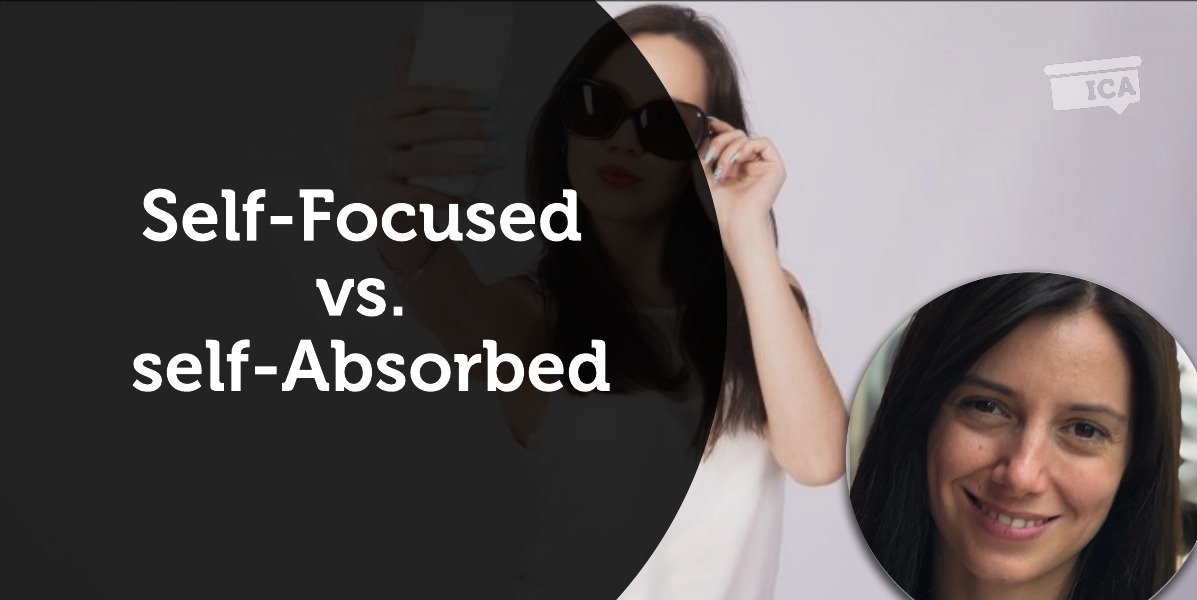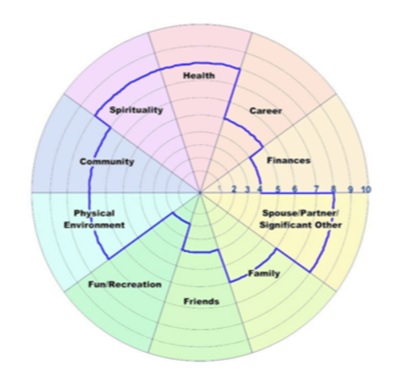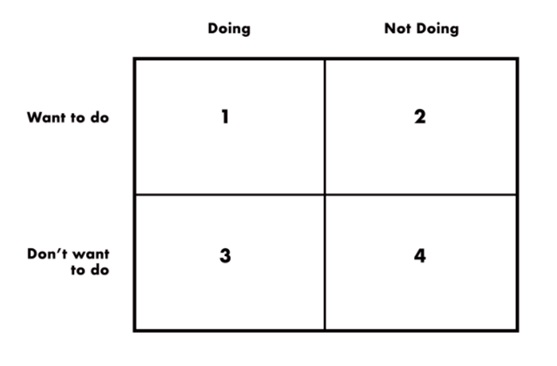 A Coaching Power Tool Created by Jennifer Elworthy Croughton
A Coaching Power Tool Created by Jennifer Elworthy Croughton
(Fertility Empowerment Coach, UNITED STATES)
Please place the oxygen mask over your own mouth and nose before assisting others. Airline safety announcement
Introduction
As a regular traveler, I understand the importance of listening to safety announcements every time I fly but despite this, my mind tends to wander. This phrase, however, always gets my attention. As a mother, it feels completely against my instinct – be selfless, always put my son first. As a coach, it also feels uncomfortable – focuses on the client, listens actively, be with them at the moment. But there’s a scientific and practical reason for this instruction that is a valuable lesson for the rest of our lives – if you spend all your time helping others it will be too late to help yourself.
This power tool aims to support clients to reframe selfishness. To move away from negative connotations and reposition it as an act of kindness and self-focus.
Explanation
What does it mean to be self-focused and why is it important?
When you take care of yourself first, you show up as a healthy, grounded person in life. Bob Rosen, author of Grounded: How Leaders Stay Rooted in an Uncertain World
A self-focused person is grounded. They can prioritize their own wellbeing to create a strong base from which to help others. When we don’t take time to be self-focused we become weak and frazzled, with no strength or energy to help others.
Being kind to yourself is one of the greatest kindnesses. The Boy, the Mole, the Fox, and the Horse, by Charlie Mackesy
Being self-focused is an act of kindness, not selfishness. It demonstrates confidence and determination to show up as your best self. Directing one’s attention and energy inwards builds internal strength and awareness, enabling us to share outwardly.
Additionally, being self-focused supports us to become more self-aware which is“the foundation of personal growth and success.”(ICA module – Awareness). By understanding our basic needs we develop intuition about what our values are, why we react a certain way, and what will support us. Self-awareness is the first step in personal growth, and it’s essential to be self-focused to achieve this.
A self-focused person approaches life with an abundance mindset. They are confident enough to lean into the self-absorption of others with kindness and don’t fear being generous.
How is this different from being self-absorbed?
Someone who is absorbed in their own interests and thoughts is not self-focused. They act based on self-interest to the exclusion and detriment of others. They often take more than they’re willing to give back. Being self-absorbed is often a learned behavior. Perhaps the person hasn’t experienced kindness and generosity themselves so have a scarcity mindset, one of fear and vulnerability. The self-focused person is confident enough to lean into this with kindness and generosity.
My experience of the benefit of being self-focused
It is the responsibility of every generation to sift through the weeds. To look at the lives we are living and to think about how they serve us. Betty Friedman, Feminine Mystique
Right now we need women who are using their life force to redefine what it means to be a woman today: women leading from a place where they are full, not from a place where they’re empty, exhausted, and not asking anybody for support. Kasia Urbaniak The Motherkind Podcast
When my son was about 18 months old I was on the verge of depression. I’d moved from London to New York, I didn’t have many friends or support systems, and my husband was busy with a new job and traveled a lot. I felt frazzled. I was running on empty and never took time for myself to do the things that would ‘fill me up’. I judged myself as a mother and a person. How could I find all of this so hard? Why would I ever need a break from the child I loved so much? What would I even do with ‘time off’? After discussing it with my husband and my therapist I realized I couldn’t be the person I wanted to be when I was so focused on others instead of myself. Eventually, I agreed to a babysitter taking care of my son one day a week. At first, I wandered the streets aimlessly and staring at photos of him. I felt terrible, it didn’t seem to be working: I just felt so guilty and aimless. Finally, I started doing some of the things I used to love pre-baby. Yoga classes that connected me with my body, quietened my mind and provided a welcoming and safe community. Buying some new clothes and getting my hair cut gave me physical confidence. Discovering new neighborhoods and falling in love with the city. Reading my book in the park, drinking coffee and daydreaming, calling friends without interruption. The list grew and grew and I slowly began to feel much better. I also noticed that I was more present with my son and that I had more energy to support my husband in his new job. Friendships also developed – perhaps as a calmer, more centered person I was more appealing to others.
Taking this time to myself was not selfish. It was self-focused. These self-focused acts strengthened me and increased my energy. It was only through being close to rock bottom that I was able to reframe selfishness to be self-focused. For me, it became necessary to be self-focused to be strong enough to support those I loved.
Also, by taking this time to myself I gained the headspace and clarity I needed to remember that I’d always wanted to study to be a coach. I had the confidence to sign up for a course and ask for help juggling studies with raising a family. I plan to be a fertility coach to empower women during their treatment that may feel all-consuming and out of their control. Self-focus will be key to ensuring I’m strong enough to do this so I can show up for my clients as strong, resilient, and ready to listen. I am committed to putting myself first to help others.
Application
Self-application
Ways to work on being self-focused:
Coaching Application
‘Know what fuel you’ll need…how to get to your destination, how to reach your goals…what ingredients do you need today? What tools do you need…what kind of breaks do you need to take?’ Ian Sanders, Storyteller Extract from The Squiggly Career by Helen Tupper and Sarah Ellis
The following coaching tools may be useful for clients to develop a clear awareness of the different aspects of their lives and address any imbalances where necessary.
Wheel of Life
The Wheel of life is a useful tool in supporting a client to visualize the different components of their life. By giving a satisfaction score against each component the client can use it as a diagnostic tool to identify which areas are flourishing and which need some attention. It is a visual life check-in. A coach can suggest their client fill in the wheel of life using a blank template such as the one below. The coach should then help the client analyze the wheel and reflect on what it tells them about their life. What are they happy with and why? What benefits them? What do they value most? What are the gaps? Where would they like to place more or less effort? What are their goals and priorities? What action can they take?
A variation could include the Wheel of Self-Focus. This could help a client recognize the things they do for themselves and position them as essential parts of their life with tangible benefits.
After a period of time, the coach should encourage the client to complete the Wheel of Life/Self-Focus again. The titles within the wheel would be the areas the client has identified as being self-focused, which makes them feel energized and happy. This will highlight the progress that’s been made or new opportunities and areas of focus for the coming weeks.
 Sample Wheel of Life from www.stepintosuccessnow.com
Sample Wheel of Life from www.stepintosuccessnow.com
Four Square Quiz
It’s not selfish to carve out an hour to do something you enjoy; it can compensate
for parts of your life, you can’t control. Someday is Not a Day in the Week: 10 Hacks to Make the Rest of Your Life the Best of Your Life by Sam Horn
Another useful tool is the Four Square Quiz. In her book ‘Someday is Not a Day in the Week’ which gives tools for living your best life, Sam Horn tells the story of her son telling her to play hooky for a day. She was exhausted after a long flight and a busy work schedule. As a mother and businesswoman with a lot of commitments and demands on her time, the concept of time off felt alien to her. She felt guilty. Her son encouraged her to use the quiz to figure out what she could do with her day off.
A coach can suggest a client complete this quiz, either during a coaching session or in their own time. They can then support the client to analyze the results, grow in awareness, and make an action plan for any desired changes.
 The quiz asks you to brainstorm answers to the following questions to figure out what will make you happier.
The quiz asks you to brainstorm answers to the following questions to figure out what will make you happier.
Square 1: What are you doing with your life that you want to do?
This question encourages you to remember what you love doing. It’s a chance to recommit to these activities and see their value as greater than the sum of their parts. It could be having a weekly coffee with a friend, shopping for a neighbor, an exercise class, prepping healthy food at the weekend so you eat better during the week.
Square 2. “What are you not doing in your life that you want to do?”
Here’s a chance to list all the things you’d love to do but don’t, and an opportunity to think about how to bring these into your life. Perhaps you’d like to exercise more, see your parents more often, watch more films.
Square 3. “What are you doing in your life that you don’t want to do?”
This identifies opportunities for positive change, such as a long commute feeling like lost or wasted time, spending too much time on social media rather than having real connections, or snacking on junk food.
Square 4. “What are you not doing in your life that you don’t want to do?”
The final question highlights past successes, such as damaging behaviors you’ve stopped doing and want to keep not doing. An example might be eating chocolate every even whereas now you just have it as a treat at the weekend.
Underlying beliefs
In conjunction with these tools, it’s the role of the coach to help the client become aware of any disempowering underlying beliefs about selfishness that may emerge. Useful questions include:
Reflection
References
Fast Company – 4 Reasons why being selfish is good for you
Grounded: How Leaders Stay Rooted in an Uncertain World by Bob Rosen (Jossey-Bass, 2013).
How Do We Know We’re Doing It Right by Pandora Sykes
The Squiggly Carrer by Helen Tupper and Sarah Ellis
Betty Friedman, Feminine Mystique
The Boy, the mole, the fox, and the horse, by Charlie Mackesy
ICA module – Awareness
Someday is Not a Day in the Week: 10 Hacks to Make the Rest of Your Life the Best of Your Life by Sam Horn.
https://ideas.ted.com/what-would-you-do-if-you-could-play-hooky-for-a-day
Sample Wheel of Life from www.stepintosuccessnow.com